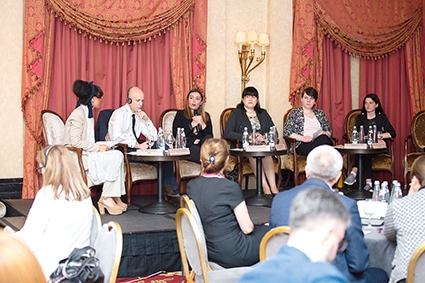CENN Hosts First Nat'l Seminar on Human Rights for Water, Sanitation & Hygiene
On May 28, the EU-supported high-level multi-stakeholder National Seminar on Water Sanitation and Hygiene (WASH) in the context of human rights took place in Tbilisi, organized by CENN. The seminar aimed to prioritize global and national challenges in national policy agendas in order to ensure access to clean water, sanitation, and hygiene.
WASH is one of the most pressing challenges both globally and in Georgia. According to the World Health Organization (WHO), diarrhea is one of the major causes of mortality in the world, and 88% of fatal cases are caused by contaminated drinking water and inadequate sanitary-hygienic conditions. Issues related to water, sanitation and hygiene are among the biggest challenges in Georgia. Since 2010, water quality testing has been carried out in only 10% of schools, and more than 70% of public schools in the country have not been able to ensure proper water treatment. Georgia’s move to implement WASH comes in line with the EU-Georgia Association Agreement which commits the country to ensuring efficient cooperation in the field of public health, with a view to raising the level of public health safety and protection of human health as an essential component for sustainable development and economic growth.
At the event, opening remarks were delivered by the Deputy Minister of Environment Protection and Agriculture of Georgia, Nino Tandilashvili; Deputy Minister of IDPs from the Occupied Territories, Labor, Health and Social Affairs, Tamar Gabunia; Deputy Public Defender, Ekaterine Skhiladze; Attaché at the EU Delegation to Georgia, Alexandre Darras; and CENN Executive Director, Nana Janashia.
“The EU believes that access to clean water, sanitation and hygiene is fundamental to ensure proper living conditions for people,” said Alexandre Darras, Attaché and Sector Coordinator for Connectivity, Energy, Environment and Climate change at the Delegation of the European Union to Georgia. “We are happy to support Georgian communities throughout the ‘Water for the Poor’ project and help improve the living conditions of vulnerable groups by ensuring improved access to clean water and better social infrastructure.”
Within the framework of the event, two main panel discussions took place. Moderated by CENN Executive Director Nana Janashia, the first panel addressed the overall issue of WASH in Georgia.
“The right to water and sanitation was recognized as a basic human right by the United Nations,” Janashia said. “At CENN, we believe ensuring timely and dignified access to sufficient and safe WASH services are essential for Georgia in the process of building community resilience and preventing the spread of WASH-related diseases. The EU support to Georgia is essential for preserving lives and alleviating the suffering of populations facing severe environmental health risks and water insecurity.”
The second panel discussion included participants from relevant ministries, the Parliament of Georgia, and representatives of local governments. The panel was dedicated to the new initiative raised by CENN’s environmental project manager, Melano Tkabladze.
“Protecting human rights related to WASH is essential at both the national and local level in Georgia,” she said. “In order to develop a nationwide WASH Action Plan, it is crucial to establish a national WASH platform that all responsible institutions participate in. An Action Plan will establish and encourage fruitful cooperation and communication amongst various stakeholders in the country to address gaps related to WASH in the current legislative framework. Moreover, it will support relevant institutions to properly implement national strategies and policy documents considering water, sanitation and hygiene issues. We are pleased that national and local authorities recognize WASH issues and have expressed their willingness to further cooperate.”
In addition to panel discussions, several WASH-related publications were presented at the meeting, including Policy Analysis and Recommendations for the Legislative Body, Legislative Governing Body, Central and Local Governments, and WASH Technical Assessment of Schools, Kindergartens and Healthcare Centers for Kvemo Kartli and Kakheti Regions.
The seminar was organized under the EU-supported project ‘Water for the Poor,’ which is implemented by CENN in partnership with the Human Rights Center (HRC) and the Women and the World (WW) association and New World Program-financed project ‘Upscaling WASH Initiatives by Providing Essential Social Services for Women and Youth in Disadvantaged Rural Communities of Georgia.’












